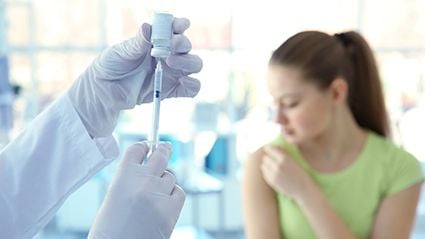The odds of neonatal respiratory distress were higher for unvaccinated mothers versus those vaccinated before infection
By Elana Gotkine HealthDay Reporter
WEDNESDAY, Jan. 24, 2024 (HealthDay News) — Maternal COVID-19 vaccination is associated with reduced frequency of neonatal respiratory distress (RD), according to a study published online Jan. 24 in Nature Communications.
Olivia M. Man, from the David Geffen School of Medicine at the University of California in Los Angeles, and colleagues examined the association between maternal COVID-19 vaccination and neonatal RD using a longitudinal cohort of mother-infant pairs. The study included 221 mothers with laboratory-confirmed severe acute respiratory syndrome coronavirus 2 (SARS-CoV-2) during pregnancy and 227 exposed fetuses.
The researchers found that SARS-CoV-2-exposed uninfected (SEU) infants had unusually high rates of RD (17 percent), with an odds ratio of 3.06 for RD in term neonates born to unvaccinated individuals compared with those born to individuals vaccinated before maternal infection. A robust inflammatory response associated with ciliary dysregulation and enhanced immunoglobulin E production was seen in a proteomic analysis among SEU infants with RD.
“Maternal vaccination against COVID-19 reduced maternal disease severity and the frequency of neonatal RD. Pregnant persons should be encouraged to receive mRNA COVID-19 vaccines, regardless of history of prior COVID-19 infection,” the authors write. “More research is needed to understand the impact of maternal COVID-19 vaccination on long-term infant health and development, including chronic pulmonary conditions.”
Copyright © 2024 HealthDay. All rights reserved.








